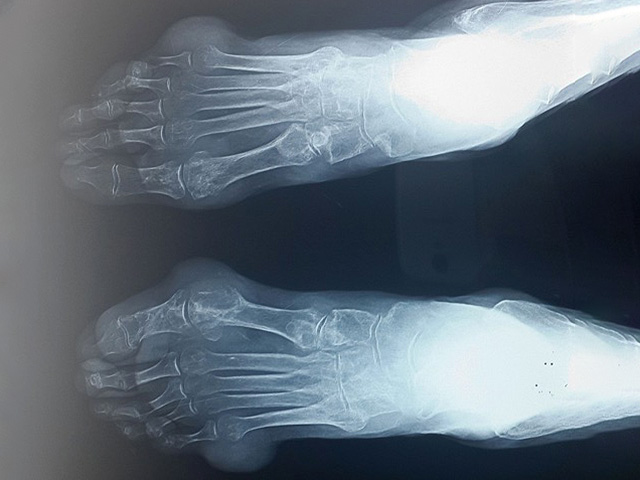An international team of scientists conducted a study that looked at genetic data collected from 2.6 million people. This number included 120,295 people with gout.
By comparing the genetic codes of people with gout to those without, the team found 377 specific regions of DNA that had variations consistent with the disease – 149 of which had not previously been associated with gout.
Gout begins to develop when uric acid levels rise in the blood, which then forms sharp crystalline needles in the joints. The immune system begins to attack these crystals, resulting in pain and discomfort. Researchers suggest that genetics are important at every stage of this process. In particular, it affects the likelihood of the body’s immune system attacking the crystals and how uric acid moves through the body.
The new research helps better understand the causes of gout and gives scientists more opportunities to study the disease and treatments, especially in managing the body’s immune response to uric acid buildup. The researchers suggest that existing drugs could be repurposed to do this job.

"NL_Profit": «Всё внимание на покер»
Nopaleva: «Если бы не 50$, я бы сейчас продавал битые тачки»
503 Service Temporarily Unavailable
503 Service Temporarily Unavailable
503 Service Temporarily Unavailable
503 Service Temporarily Unavailable
503 Service Temporarily Unavailable
503 Service Temporarily Unavailable
503 Service Temporarily Unavailable
503 Service Temporarily Unavailable
503 Service Temporarily Unavailable
503 Service Temporarily Unavailable
503 Service Temporarily Unavailable
503 Service Temporarily Unavailable
503 Service Temporarily Unavailable
503 Service Temporarily Unavailable
503 Service Temporarily Unavailable
503 Service Temporarily Unavailable
503 Service Temporarily Unavailable
503 Service Temporarily Unavailable
503 Service Temporarily Unavailable
503 Service Temporarily Unavailable
503 Service Temporarily Unavailable
503 Service Temporarily Unavailable
503 Service Temporarily Unavailable
503 Service Temporarily Unavailable
503 Service Temporarily Unavailable
503 Service Temporarily Unavailable
503 Service Temporarily Unavailable
503 Service Temporarily Unavailable